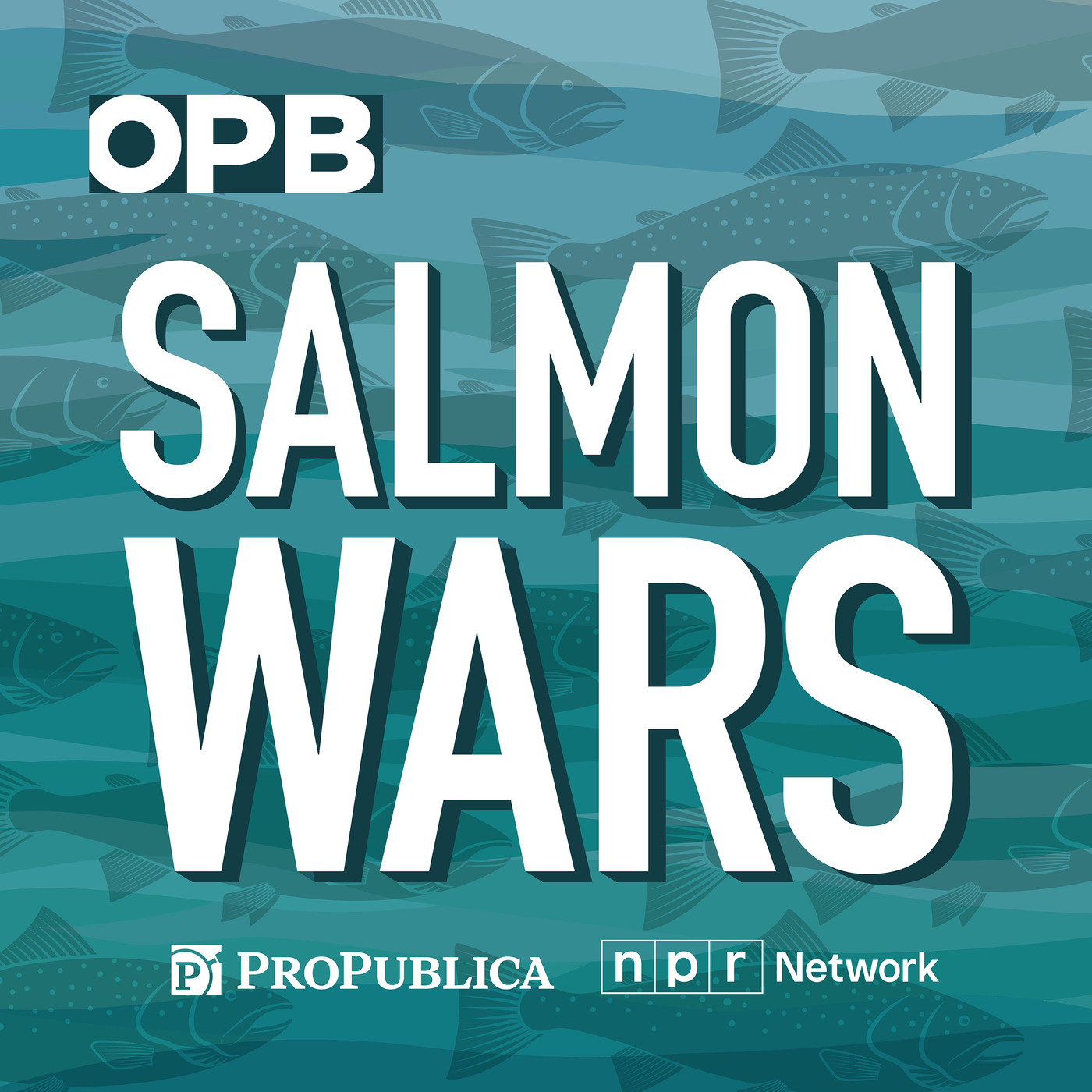Salmon are essential to Columbia River tribal people. These fish represent not only a food source but a way of life. As a white kid growing up in the Pacific Northwest, Tony Schick heard a lot about salmon — how important they are to this region, and how much trouble they’re in now. But the history he learned was not the whole story. As an investigative reporter for OPB and ProPublica, he’s been working to uncover and understand a more sinister version of events. And along the way, he connected with a guy named Randy Settler and his family.
“Salmon Wars,” a production from OPB and ProPublica, tells the story of salmon in the Northwest in a way you haven’t heard before – through the voices of one Yakama Nation family who have been fighting for salmon for generations. We’ll dive into hidden history. We’ll investigate who’s to blame for the salmon vanishing, and what can be done before it’s too late.

Timber Wars Season 2: Salmon Wars
From Oregon Public Broadcasting
Salmon are essential to Columbia River tribal people. These fish represent not only a food source but a way of life. As a white kid growing up in the Pacific Northwest, Tony Schick heard a lot about salmon — how important they are to this region, and how much trouble they’re in now. But the history he learned was not the whole story. As an investigative reporter for OPB and ProPublica, he’s been working to uncover and understand a more sinister version of events. And along the way, he connected with a guy named Randy Settler and his family.
“Salmon Wars,” a production from OPB and ProPublica, tells the story of salmon in the Northwest in a way you haven’t heard before – through the voices of one Yakama Nation family who have been fighting for salmon for generations. We’ll dive into hidden history. We’ll investigate who’s to blame for the salmon vanishing, and what can be done before it’s too late.